带有正常耳道的儿童和成人的耳压力开闭功能_中文版
VIP免费
Acta Otolaryngol Downloaded from informahealthcare.com by Kainan University on 04/04/15
Acta Otolaryngol 95:55-62,1983
PRESSURE OPENING AND CLOSING FUNCTIONS OF THE EUSTACHIAN TUBE IN
CHILDREN AND ADULTS WITH NORMALEARS
Anita Bylander,Orjan Tjernström and Alf Ivarsson
From the Department of Otolaryngology,University of Lund,Malmö General Hospital,Malmö,Sweden
(Received December 2,1981)
Abstract.Eustachian tube function was studied with the
impedance technique and a pressure chamber in 58 chil-
dren,aged 3-12 years,and 61 adults,aged 17-73 years,
all otologically healthy.The pressure opening and closing
functions were measured,i.e.the relative overpressure in
the middle ear required to force open the tube,and the
residual overpressure in the middle ear after pressure
opening,respectively.These passive"functions of the
tube,assumed to reflect the closing factors,did not differ
significantly between normal children and adults.The
muscular opening function,i.e."active"pressure equili-
bration capacity,on the other hand,was significantly
poorer in children than in adults and poorer in younger
children than in older ones.The results can be used as a
reference material in investigations of the Eustachian tube
in children with middle ear disease.
For personal use only.
In the last few decades interest has focused
mainly on the muscular opening function of
the Eustachian tube,but recent reports have
stressed the importance of investigation of the
pressure opening and closing functions of the
tube as well(Bluestone et al.,1972,1974;Can-
tekin et al.,1976;Ekvall &Magnusson,1977;
Ingelstedt,1978;Magnusson,1980).
Bluestone et al.(1972,1974)and Cantekin et
al.(1976)have tried to elucidate the nature of
tubal dysfunction in children with middle ear
effusions or recurrent otitis media.They often
found poor muscular opening function in asso-
ciation with low opening pressures and sug-
gested that functional obstruction of the tube,
i.e.too distensible or compliant a tube,rather
than mechanical obstruction,might be a cau-
sative factor of middle ear disease in children.
Ekvall &Magnusson(1977)and Magnusson
(1980)reported impaired closing ability of the
tube in chronic adhesive otitis media and re-
traction cholesteatoma.They proposed that
these patients with “closing failure”,i.e.low
closing pressures of the tube,might get nega-
tive middle ear pressures due to habitual sniff-
ing,which also in children might be an impor-
tant factor for the retraction of the eardrum.
Before any conclusions can be drawn re-
garding the role of tubal dysfunction as an
etiological factor in middle ear disease,it is
obvious that knowledge must be acquired of
tubal function in otologically healthy children
and adults.It also seems important to investi-
gate the pressure opening and closing func-
tions as well as the muscular opening function
of the tube.
Such an investigation requires a method,al-
lowing the study of the above-mentioned vari-
ables of tubal pressure equilibration functions,
in subjects with intact eardrums without dis-
turbing the normal physiology of the middle
ear.The impedance method in combination
with a pressure chamber meets these require-
ments and has proved to be suitable also in the
examination of small children(Bylander et al.,
1981).
The aims of this study were:1)to investigate
the "passive"pressure opening and closing
functions as well as the "active"muscular
opening function in otologically healthy chil-
dren of different ages;2)to compare the re-
sults with those of normal adults tested with
the same method;and 3)to compare the re-
sults of the "passive"functions with those of
the "active"muscular opening function in
these children and adults.
Acta Otolaryngol 95
由凯南大学于2015年4月4日发布于informahealthcare.com
耳鼻喉学学报95:55-62,1983
带有正常耳道的儿童和成人的耳压力开闭功能
Anita Bylander,Orjan Tjernstrom和Alf Ivarsson
瑞典隆德大学耳鼻喉科,马尔默综合医院,马尔默
(1981年12月2日收到)
摘要。本研究采用阻抗技术结合压力舱法,对58名3-12岁
儿童和61名17-73岁成人( 所有受试者 均 耳科健
康)的咽鼓管功能进行研究。测量中耳压力开启与
闭合功能,即引导咽鼓管开启所需的中耳相对过压
值,以及压力开启后中耳残留的过压值。这些被动“功能”
(推测反映闭合机制)在正常儿童与成人之间无显著差异。
然而, 肌肉开启功能 (function,i.e.“主动”压力平衡 能
力)在儿童中明显逊于成人,且低龄儿童表现更差。本研究
结果可作为儿童中耳疾病患者咽鼓管功能评估的参考依据。
仅供个人使用。
下载的耳鼻喉科病例
近几十年来,研究焦点主要集中在咽鼓管
的肌肉开闭功能,但最新研究强调了探究
其压力开闭机制的重要性(Bluestone等,
1972,1974;Cantekin 等 ,1976;Ekvall 与
Magnusson,1977;Ingelstedt,1978;
Magnusson,1980)。
布鲁斯通等人(1972、1974)与坎特金团队
(1976)曾针对中耳积液或反复发作的中耳
炎患儿,深入探究输卵管功能障碍的本质。
研究发现,患儿普遍存在肌肉张力不足导致
的开启功能障碍,伴随较低的开启压力。研
究者提出,相较于机械性阻塞,输卵管功能
障碍(即管壁过度扩张或顺应性增强)可能
是引发儿童中耳疾病的潜在病因。埃克瓦尔
与马格努松(1977)以及马格努松(1980)
的研究则揭示,慢性粘连性中耳炎患儿的输
卵管闭合功能存在明显缺陷。
牵拉性胆脂瘤。研究者指出,这些患者因耳
道闭合压力(failure“,i.e.low)闭合时,可
能因习惯性吸气导致中耳压力下降,这种情
况在儿童中尤为常见,可能是鼓膜回缩的重
要诱因。
在探讨输卵管功能障碍作为中耳疾病病因
因素的作用前,必须先明确耳科健康儿童和
成人的输卵管功能状况。同时,研究输卵管
的压开闭功能及肌肉开闭机制也具有重要价
值。
此类研究需要采用特定方法,以在不干扰
中耳正常生理功能的前提下,对鼓膜完整受
试者的输卵管压力平衡功能相关变量进行检
测。阻抗法结合压力舱技术不仅符合上述要
求,且经证实适用于婴幼儿检查(Byland-
er等,1981)。
本研究旨在:1)探究不同年龄段耳科健康
儿童的“被动”压力开闭功能及“主动”肌
肉开闭功能;2)将实验结果与采用相同方法
测试的正常成年人进行对比;3)比较这些儿
童与成人中“被动”功能与“主动”肌肉开
闭功能的差异。
耳鼻喉学学报
95
Acta Otolaryngol Downloaded from informahealthcare.com by Kainan University on 04/04/15
For personal use only.
56 A.Bylander et al.
MATERIAL AND METHODS
The material consisted of 58 otologically
healthy children,aged 3-12 years(mean 7.0
years)and 61 adults,aged 17-73 years(mean
29.8 years).The criteria for acceptance as oto-
logically healthy were:no history of recurrent
otitis media;no history of middle ear effusion
or impairment of hearing;no history of ob-
structing adenoid or allergy;no symptoms or
signs of upper respiratory tract infection when
tested;normal otoscopic or otomicroscopic
findings including examination with Siegle's
pneumatic otoscope;pure tone hearing thresh-
old within 0-20 dB(ISO standard 1964);and
V-shaped tympanograms indicating air-filled
middle ears.
Equipment
An electroacoustic impedance bridge,model
ZO 70(Madsen Electronics,Copenhagen,
Denmark),with a probe frequency of 220 Hz
was used for the recordings.A pressure cham-
ber was used to induce static relative over-and
underpressures in the middle ear for testing
muscular opening function and to induce dy-
namic relative pressure changes in the middle
ear for testing pressure opening and closing
functions.The pressure range of the chamber
was±7kPa and the mean rate of pressure
change from ambient pressure to -7kPa was
0.37 kPa/s.During changes in chamber pres-
sure an open communication between the ear
canal and the chamber was established by a
valve.The recordings were made on a multi-
channel ink jet recorder(Mingograph 81,Sie-
mens Elema,Stockholm,Sweden)with a chart
speed of 10 mm/s.For further details of the
equipment,see Bylander et al.(1981).
ment.Only the left ear of each subject was
tested.All recordings of the tests were per-
formed by one and the same examiner.Three
variables of Eustachian tube function were
studied,viz.muscular opening function,pres-
sure opening function,and pressure closing
function.
Muscular opening function was assessed
from the subject's ability to equilibrate a static
relative overpressure as well as a relative un-
derpressure of 1kPa in the middle ear,induced
by changing the chamber pressure.The "ac-
tive"pressure equilibration performed by the
subject was standardized in the following way:
if the middle ear pressure was not equilibrated
completely by deglutition,wet (juice)and dry,
alternately,10 times within 3 min.,the subject
was instructed to open the mouth,yawn,move
the mandible laterally and swallow repeatedly,
for up to 10-20 min.This is called "the meth-
od of free choice”,as described by Bylander
et al.(1981).The subjects were divided into
four tubal function groups according to Elner
et al.(1971).Group Iequilibrated both positive
and negative pressures of 1 kPa to less than0.1
kPa residual pressure.Group I equilibrated
partially positive and negative pressures (re-
sidual pressures 0.1-0.9 kPa).Group Ⅲ
equilibrated positive pressures of 1 kPa com-
pletely or partially but not any applied nega-
tive pressures.Group IV equilibrated neither
positive nor negative pressures of 1 kPa.Mus-
cular opening function was assumed to be
good in groups I and II as air passed in both
directions in the tube,but to be poor in groups
II and IV as no equilibration of negative pres-
sure was recorded during the test period.The
muscular opening function test has been de-
scribed in detail elsewhere(Bylander et al.,
1981).
Performance
Informed consent of the children's parents
was obtained before the tests.The subject was
seated comfortably in the pressure chamber
and instructions were given for the different
tests.The small children needed an assistant in
the chamber for instructions and entertain-
Pressure opening function was assessed
during decreasing pressure in the chamber by
measuring the change in chamber pressure re-
quired to induce a relative overpressure in the
middle ear necessary to open the tube(Fig.1)
This pressure change is called the pressure
opening level (Pol).First the neutral position
Acta Otolaryngol 95
摘要:
展开>>
收起<<
ActaOtolaryngolDownloadedfrominformahealthcare.combyKainanUniversityon04/04/15ActaOtolaryngol95:55-62,1983PRESSUREOPENINGANDCLOSINGFUNCTIONSOFTHEEUSTACHIANTUBEINCHILDRENANDADULTSWITHNORMALEARSAnitaBylander,OrjanTjernströmandAlfIvarssonFromtheDepartmentofOtolaryngology,UniversityofLund,MalmöGeneralHo...
声明:如果您的权利被侵害,请联系我们的进行举报。
相关推荐
-
IVD产品设计开发以及注册申报流程图VIP免费
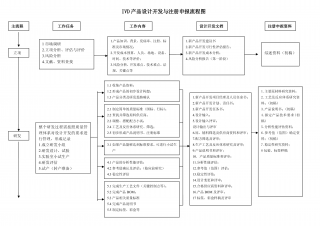
 2024-04-12 148
2024-04-12 148 -
医疗器械设计开发控制指南VIP免费
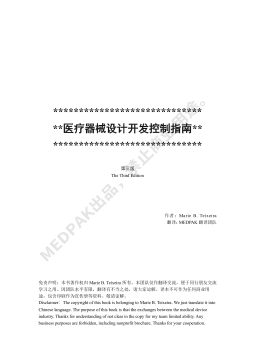
 2024-04-12 220
2024-04-12 220 -
YY∕T 0664-2020医疗器械软件软件生存周期过程核查表VIP免费
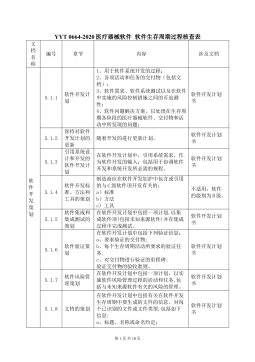
 2024-04-12 202
2024-04-12 202 -
创新医疗器械注册申报流程
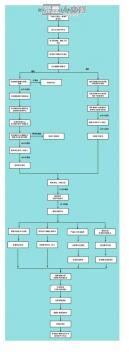
 2024-05-02 110
2024-05-02 110 -
20221028_医疗器械生产现场核查缺陷分析交流(江苏药省监局审核查验中心) (1)VIP免费
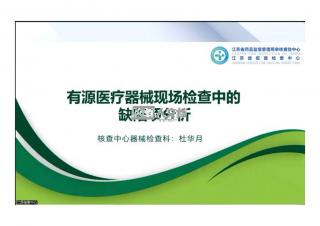
 2024-05-09 73
2024-05-09 73 -
医疗器械网络安全漏洞自评报告VIP专享
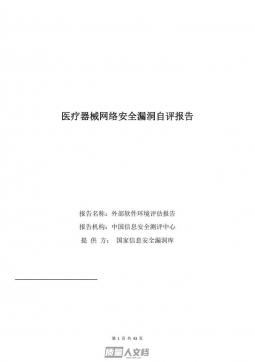
 2024-11-18 263
2024-11-18 263 -
内审检查表 MDR法规VIP免费
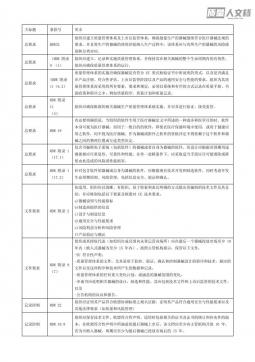
 2025-04-07 157
2025-04-07 157 -
国产三类医疗器械首次注册-申报前准备工作VIP免费
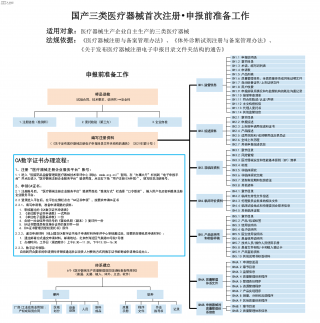
 2025-09-03 19
2025-09-03 19 -
国产三类医疗器械首次注册-申报流程VIP免费
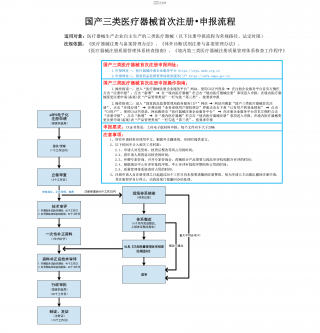
 2025-09-03 23
2025-09-03 23 -
国产三类医疗器械变更注册VIP免费
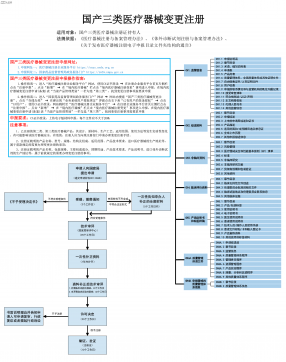
 2025-09-03 18
2025-09-03 18
作者:多多猪
分类:实用文档
属性:16 页
大小:892.07KB
格式:PDF
时间:2025-10-23


